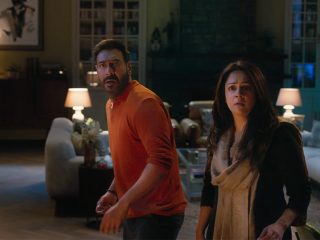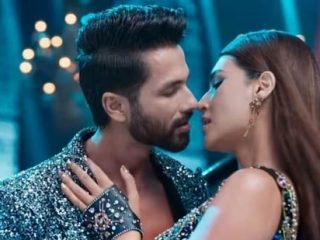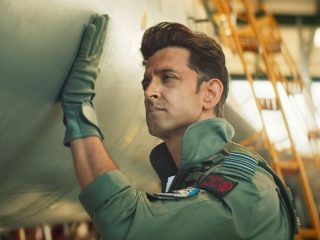Like his previous films, Vidhu Vinod Chopra receives flak for not just producing a movie but also directing it. After movies like PK and Sanju, it’s time for the whole nation to criticize him for presenting a distorted version of history to a cinema-crazy audience.
*Enter Shikara.*
Shiv Kumar Dhar (played by Aadil Khan) and Shanti Dhar (played by Sadia) are a happy couple living in the picturesque valley of Kashmir and they love each other an immeasurable amount. After accidentally crossing paths with each other in Kashmir, they fall in love. Once they are married, they build a house and name it after the place where they consummated their relationship- Shikara (boat). The beautiful dream comes to an end when they are demanded to leave Kashmir because of the invasion of militants. The hardships faced by them when they’re forced to move out of their beautiful home and be part of a refugee group, takes up the rest of the story.
After they are evacuated from Kashmir, they go through heart- wrenching hardships. Their love for each other and the hope that they will eventually return to Kashmir is what keeps the far-fetched and predictable love story engaging.
It is completely fine if a film based on true events, leverages the cinematic liberty to squeeze in a bit of emotion to engage the audience. However, this should not be done at the cost of distorting important pieces of history. The only thing which saves the film is the love story between the lead actors. Both of them have done a very good job of presenting to us a couple in distress due to the political turmoil around them. Sadia wears an infectious smile during the younger portions and emotes effortlessly.
Before I entered the theatre, I had carefully read an article from a credible website on the exodus of Hindus from Kashmir during the early 90’s by the militants. After I came out of the theatre, whatever I read in the article was just partially shown on-screen by Vidhu Vinod Chopra. The director blames the police and the union government for the evacuation of Hindus and gives a free chit to the militants. The love story seems to be heavily emphasized on and the focus is completely on emotions rather than correct portrayal of history, which can heavily sway the audiences in one direction.
Shiv writes letters to the presidents of the USA spanning more than 3 decades. His optimism is inspirational but is it convincing? No. He endures so much hardships but doesn’t show a tinge of anger or rage. His wife and him look dejected and shocked at the rude turn of events as there’s a melancholic tune running throughout the second half of the film, but Shiv and Shanti, where is the frustration? In spite of having three very-well accomplished writers onboard, the emotions just don’t register at places where it has to. Even though this is a trivial issue and can be ignored as the film paints a much bigger picture, I still feel the characters could have been etched in a much better way. When Vidhu Vinod Chopra has helmed films like Munna Bhai MBBS, Lage Raho Munna Bhai, PK and Wazir, you’re bound to have some expectations.
Credit has to be given to the makers as they used the concepts of love and hate to form a story and the constant shift between these two concepts gives flesh to the story. There are a few shyly disturbing scenes in the film which have the potential to leave you scarred for life. After watching the film, you would definitely appreciate small things about life and not true about trivial things.
If you could judge this film only on cinematic parameters, it is definitely hard-hitting and you might just shed a tear or two. You would be severely disappointed if you judge this film on parameters like ‘historical correctness’ and ‘political context’. Overall, it is a good watch for the weekend but you can give this a miss if you’re a history buff (and/or a bhakt!).











